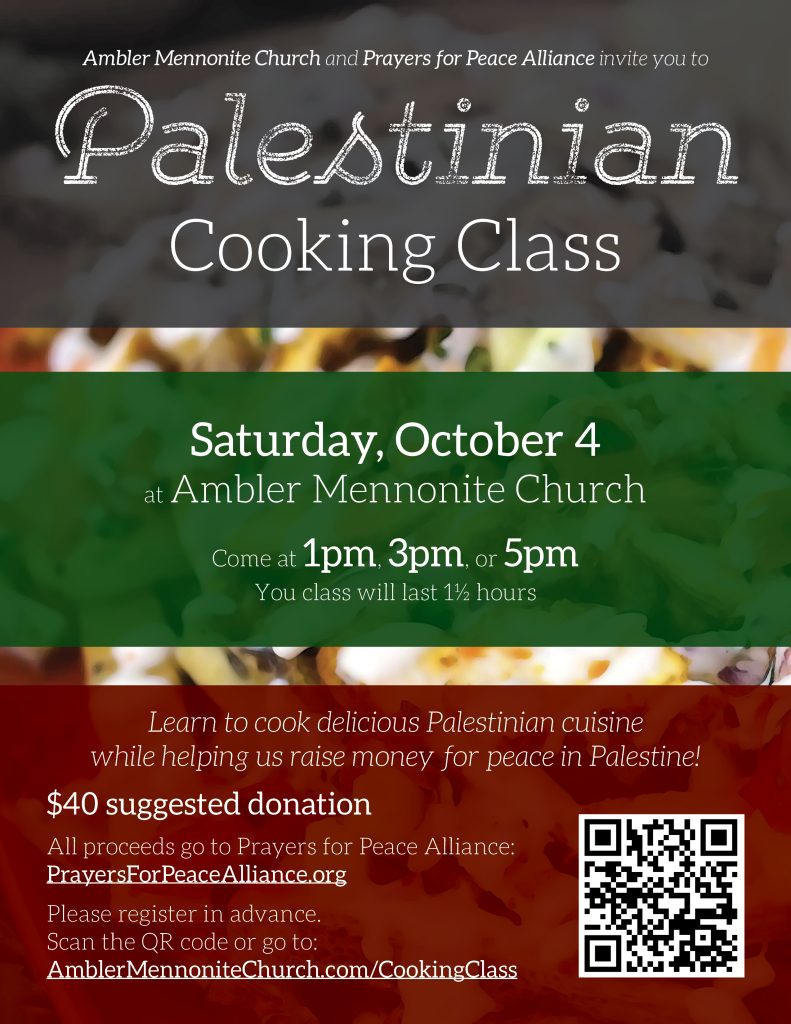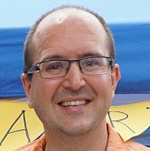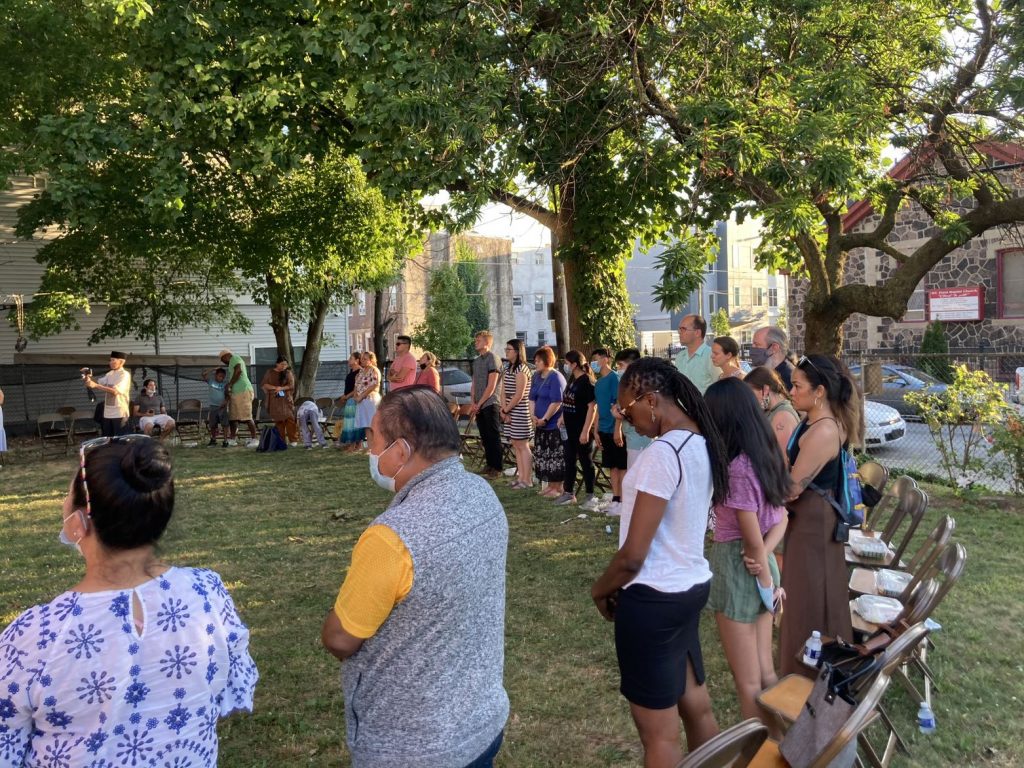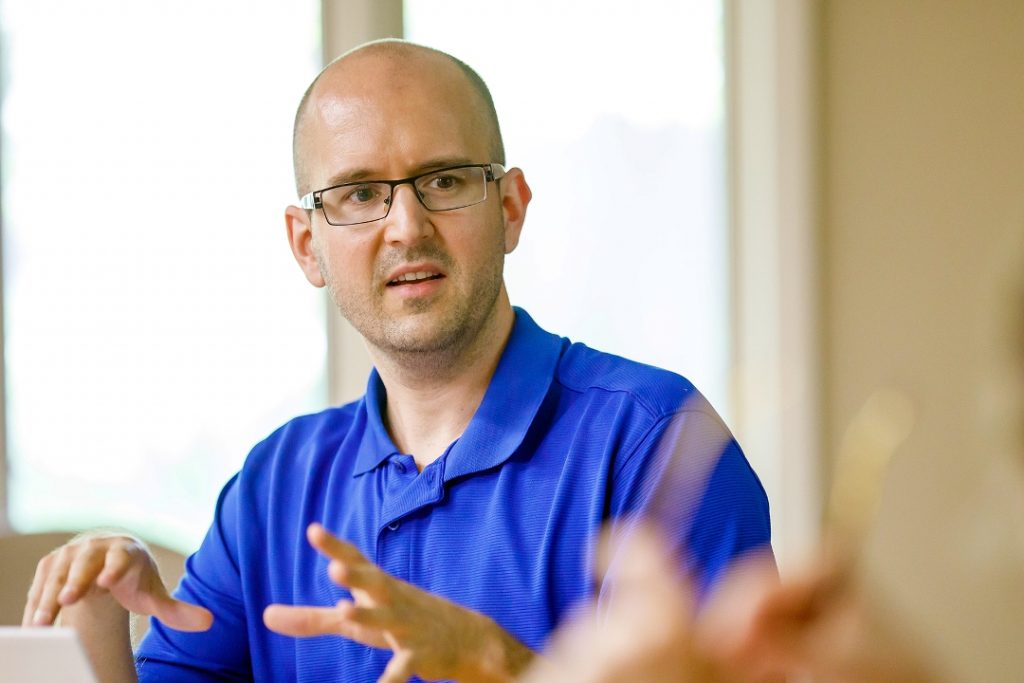by Jacob Curtis
Do you know Sam and Jehan Kuttab? When I ask Philadelphia-area Mennonites that question, I’m always surprised by how many of them say enthusiastically, “Yes! I know the Kuttabs! They had me over to their house in Wyncote.”
And then their eyes light up as they try to describe it. How mouth-wateringly delicious Jehan’s Palestinian cooking was. How the entire house was filled with the aroma of cardamom, sumac, and za’atar. How they felt when they tasted her perfectly spiced musakhan—tender chicken falling off the bone beneath a blanket of caramelized onions, all of it fragrant with allspice and turmeric. How they savored her mahshi—stuffed vegetables bursting with the warmth of cinnamon and the brightness of fresh mint. How the meal was a feast for the senses and a love letter to Palestine.
And when they’re done talking about the food, they talk about all the people they were introduced to—this warm, welcoming Palestinian clan of parents, children, aunts, uncles, nieces, nephews, cousins, all making them feel like they belonged.
If you’ve had this experience yourself, you’re already nodding along. And if you haven’t, you should. At the end of this article, I’m going to tell you how you can learn to cook Palestinian-style from Jehan herself … while helping to raise money for peace in Palestine. But before I get there, a little background:
Sam’s parents, George and Frocina, moved to the United States when Sam was 11 years old. While they were still in Palestine, the family had connected with Mennonites who were working for peace and justice there. So when they arrived in Philadelphia, they went looking for a church home among the Mennonites. First, they landed at Diamond Street Mennonite. When they moved to Wyncote, they transferred to the little Mennonite church in Ambler where my wife Michelle and I are now pastors. They stayed, they settled in, and the congregation fell in love with them. People at our church still smile when they talk about the Kuttabs.
Eventually, Sam and Jehan started attending Oxford Circle Mennonite, where they’re still active members. And even though they’ve lived away from Palestine for decades now, they stay connected with folks back home. They’ve heard how friends and family have been threatened, harassed and denied basic civil rights under the Israeli occupation. When Hamas launched an attack into Israel on October 7, 2023, killing over 1,000 Israelis and taking 250 more as hostages, the Kuttabs were sad and scared. And since that day, their grief and fear have only increased as Israel has bombarded and besieged Gaza, killing over 78,000 Palestinians, and leaving those who remain homeless, traumatized, maimed, and starving.
What would you do if your people were being massacred? Sam’s response to this horror has been to turn to the teachings of Jesus. “Love your enemies,” Jesus said. Sam has tried to do that. In the aftermath of the Hamas attacks, he connected with Justin Marshall, a young Jewish man who is also passionate about peace and justice in Palestine. Together, they founded the Prayers for Peace Alliance, a group of Philadelphia-area Palestinians and Jews determined to show that their two people don’t have to be enemies. Together, they’ve been visiting local Christian churches with a simple message: “Pray for us. Pray for peace in Palestine.”
Things have only gotten worse in Gaza. But Sam and Justin and their friends continue to do their work—building relationships, raising support, organizing, protesting, teaching, persuading, and praying. Which brings us full circle—to cooking for Palestine. This fall, you have a chance to learn from Jehan while raising money to support the work of Prayers for Peace.
On Saturday, October 4, Ambler Mennonite has invited Jehan to teach Palestinian cooking classes in our building (90 E Mt Pleasant Ave, Ambler, PA). Anyone who’s interested can come at 1pm, 3pm, or 5pm for a 1½ hour class. There will be Palestinian music playing, Palestinian decorations, and, of course, you’ll leave with the delicious cuisine you now know how to make yourself!
We’re asking participants to register in advance here. The cost is $40 (though more is welcome). All of the proceeds will go to Prayers for Peace Alliance. And when you’re done cooking, you can stick around to talk to representatives of Prayers for Peace and Mennonite Action about how to support peace in Palestine. We hope to see you there!

Visit AmblerMennoniteChurch.com/CookingClass

Jacob Curtis
Jacob Curtis is co-pastor of Ambler (PA) Mennonite Church with his wife, Michelle.
Mosaic values two-way communication and encourages our constituents to respond with feedback, questions, or encouragement. To share your thoughts or send a message to the author(s), contact us at communication@mosaicmennonites.org.


